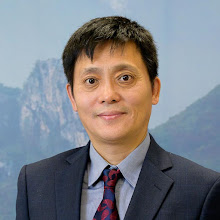World Acupuncture Day was celebrated 3 days ago in Paris. Unfortunately all of the acupuncturists in the World received bad news after the good news on the same day –The Spanish government has announced plans to remove alternative medicine such as acupuncture or homeopathy from health centres. The reason for this decision is to avoid the “potential harmful effects” the science and health ministers said, further stating that: “Many people still believe that some treatments work despite there being no scientific proof available,” I disagree with this opinion, in fact there is considerable scientific evidence showing that acupuncture is a scientific therapy.
Three points below show that this is an ill-considered and
incorrect decision made by the Spanish government.
Firstly,
many scientific research reports support acupuncture.
PubMed is a free search engine accessing primarily the MEDLINE database on life sciences and biomedical topics. It was
maintained by the United States National Library of Medicine (NLM) at the National Institutes of Health . When you put
“acupuncture” as a key word in PubMed search, you can get 29,039 papers. In
these papers 15,057 were published in the last 10 years; 8,474 were published
in the last 5 years; 4,113 papers were randomized
controlled trial (RCT)reports; 1,474 papers were published in core
clinical journals; 18,876 papers were published in English; 81 papers were
published in Spanish. Of course not all of these reports have got a positive conclusion,
but this statistical data demonstrates that acupuncture is becoming a hot point
of medical research. Many positive scientific reports
of the efficacy of acupuncture can be found in the research update of ATCM at this link.
Secondly, acupuncturist training must keep a high qualification.
Like many Western medicine therapies, acupuncture has indications
and contraindications. It also has some potential risks. An acupuncturist must
have proper training. In China acupuncturist must have 5 years full time
training to get a BSc degree in a Chinese medicine university. They not only
learn acupuncture and Chinese herbal medicine but are also trained in modern
medicine knowledge. They must be aware of the red flags of clinical practice. Nobody
can become an acupuncturist after a very short training period, even if
qualified in Western medicine. Acupuncture training varies in different
counties. Statutory regulation of acupuncture is needed to protect the patients,
and the integrity of the profession. The Spanish government should regulate acupuncture rather
than ban it.
Thirdly, evaluating a therapy should have a fair standard.
Medical errors often happen in Western
medicine, it has become the third
leading cause of death in the US [1]. An EU-WHO statistical
data report shows
that medical errors and health-care related adverse events occur in 8% to 12%
of hospitalizations. For example, the United Kingdom Department of Health, in
its 2000 report 'An Organisation with a Memory', estimated that there are about
850 000 adverse events a year (10% of hospital admissions). Spain (in its 2005
national study of adverse events) and France and Denmark have published
incidence studies with similar results [2]. The medical error
incidence of acupuncture is much lower compared to Western medicine. Statistic research
in China showed that from 1950-2002
there are 1192 cases reported of acupuncture accident, and 52 death cases[3]. It
is estimated that there are hundreds of thousands of acupuncture treatments in
China every single day. The death rate is only one case per year in average. I
have no comment on other alternative
medicine treatments. Acupuncture is a very
safe therapy if it is carried out by a high qualified practitioner. The Spanish government
should use the same rule to evaluate every therapy, and
listen to the feedback of the public before they make the final decision.
Eliminating acupuncture is an
absolutely wrong decision. It could not
protect public health and will leave more
patients exposed to the side effects of chemical drugs
and the risk of surgical operations.Acupuncture is a valuable asset for all
mankind, do not throw it away.
Reference:
- Makary MA, Daniel M. Medical error-the third leading cause of death in the US. [J]. BMJ. 2016 May 3;353:i2139. doi: 10.1136/bmj.i2139.
- http://www.euro.who.int/en/health-topics/Health-systems/patient-safety/data-and-statistics.
- Zhang Ren. History and current condition of acupuncture accident. Journal of Chinese Integrative Medicine. 2004; 2(4): 306-313.










